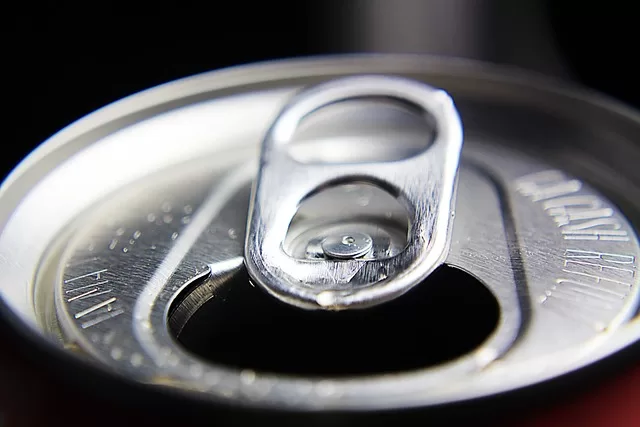Pepsi Max is a diet soda alternative that has become increasingly popular in recent years. It’s marketed as having a similar taste to regular Pepsi, but with zero sugar and fewer calories.
However, concerns have been raised about the potential health effects of diet soda in general, leading some to question whether or not Pepsi Max is actually healthy.
In this article, we’ll take a closer look at the ingredients of Pepsi Max, compare it to regular Pepsi, and review current research on the health effects of diet soda to help determine if Pepsi Max is an unhealthy choice.
Pepsi Max Ingredients
Pepsi Max is made up of a combination of ingredients, including carbonated water, caramel color, phosphoric acid, aspartame, potassium benzoate, natural flavors, potassium citrate, caffeine, acesulfame potassium, and sucralose.
- Carbonated water: provides the fizzy, bubbly consistency of Pepsi Max.
- Caramel color: gives Pepsi Max its brown color.
- Phosphoric acid: helps preserve the drink and gives it a tangy flavor.
- Aspartame, acesulfame potassium, and sucralose are artificial sweeteners that are used to replace sugar and provide a sweet taste without the added calories.
- Potassium benzoate: preservative that helps prevent the growth of bacteria and mold in the drink
- Potassium citrate: is used to adjust the acidity of the drink.
- Caffeine: is used to provide a boost of energy,
While none of the ingredients in Pepsi Max are inherently harmful, some people may have concerns about the potential health effects of consuming artificial sweeteners or other additives.
It’s important to note that research into the safety of artificial sweeteners is ongoing, and some studies have raised concerns about their potential impact on health.
However, it’s also important to note that Pepsi Max contains less caffeine than regular Pepsi, and also in smaller amounts than found in coffee or tea. It’s always good to check with a healthcare professional before
Pepsi Max vs. Regular Pepsi
When comparing Pepsi Max to regular Pepsi, the key difference is in their calorie and sugar content. Pepsi Max has zero sugar and fewer calories per serving, which makes it a more attractive option for those looking to reduce their sugar and calorie intake.
- Regular Pepsi contains about 150 calories and 41 grams of sugar per 12 fl oz (355 ml) serving.
- Pepsi Max, on the other hand, contains about 69 calories and zero grams of sugar per the same serving size.
Additionally, regular Pepsi contains high fructose corn syrup, a type of sugar which has been linked to obesity and other health issues, while Pepsi Max contains artificial sweeteners which is a controversial topic in terms of health effects.
Research on the health effects of diet soda
There is ongoing research into the health effects of consuming diet soda. Studies have suggested that consuming diet soda may be linked to an increased risk of obesity, diabetes, and heart disease.
Additionally, some studies have suggested that consuming diet soda may interfere with the body’s ability to regulate blood sugar, which could be particularly harmful for those with diabetes.
However, it’s important to note that most of the studies linking diet soda to negative health outcomes have been observational studies, which can show associations between diet soda and health issues but can’t prove that the diet soda is the cause of these health issues.
Also, some studies have shown that people who drink diet soda tend to have a less healthy diet overall, which might make it difficult to disentangle the effects of diet soda from the effects of the diet as a whole. Therefore more research is needed to understand the relationship between diet soda consumption and health.
There are studies that have specifically looked at Pepsi Max, however, those are focused on the use of artificial sweeteners and its impact on health, it’s important to remember that more research is needed to fully understand the impact of artificial sweeteners on health.
It’s important to note that drinking diet soda in moderation is likely not harmful. However, it’s not a good idea to rely on it as a sole source of hydration, as it’s always better to drink water, herbal tea, and other healthier options. And also, It’s crucial to keep in mind that a balanced diet and regular physical activity are crucial for maintaining overall health and wellness.
Alternatives To Pepsi Max
If you are looking for a healthier alternative to Pepsi Max, there are many options to choose from. Here are a few options that can be consumed as a healthier alternative:
- Water: drinking water is the best and healthiest option for hydration. It’s calorie-free, sugar-free and provides essential electrolytes for the body
- Herbal tea: it’s a great option if you’re looking for a refreshing, low-calorie beverage that also has the added benefit of antioxidants and other beneficial compounds depending on the herb you choose.
- Unsweetened coffee: plain black coffee is calorie-free and may have several health benefits such as improved mental alertness and lower risk of certain diseases.
- Fresh Juice or Smoothies: another alternative that provides essential vitamins and minerals, these can be made at home with fresh fruits and vegetables, which provides natural sweetness and nutrients.
It’s important to note that these alternatives may not be sweetened, so if you’re looking for sweetness, consider adding natural sweeteners like honey, maple syrup, or stevia.
Another important point is to reduce soda consumption in general, by replacing it with healthier options you not only reduce your intake of calories and sugar but also improve your overall diet quality.
Conclusion
Pepsi Max is a diet soda alternative that provides a sweet taste without the added calories and sugar of regular Pepsi. However, concerns have been raised about the potential health effects of consuming artificial sweeteners. While more research is needed to fully understand the impact of artificial sweeteners on health, it’s important to consider that diet soda is not intended to be consumed in large amounts, and should be part of a balanced diet. Water, herbal tea, and other healthier options can be consumed as a healthier alternative, they are calorie-free, sugar-free and provide essential electrolytes for the body, also consuming natural juice or smoothies provides natural sweetness and essential vitamins and minerals.

Barbara Weiss is a highly accomplished health expert with over 20 years of experience in the field. She is a certified physician assistant and a member of multiple professional organizations, including the American Academy of Physician Assistants.


